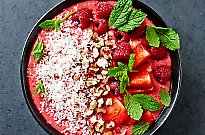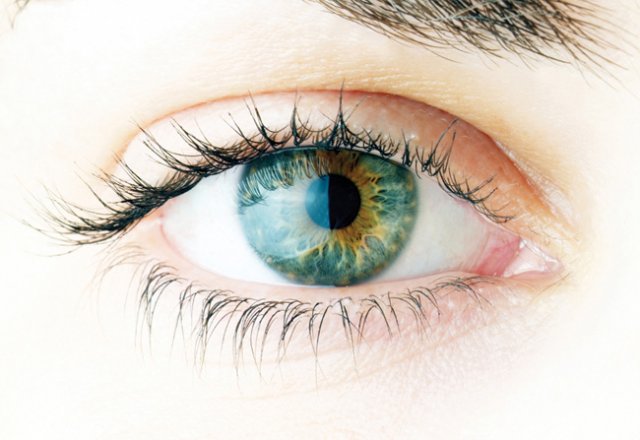
How to protect your eyes

Maintain good eye health with our top tips
Long considered windows to the soul, our eyes are one of our most important faculties. Yet, with daily strains of computer work and as targets for toxic beauty products, they’re also often one of our most neglected, writes Shannon Dunn.
According to the Australian Government’s National Health Survey (2004-05), more than 10 million people suffer from a long-term eye problem – that’s approximately half of Australia’s population who seek the help of doctors and specialists for a range of eye disorders; from astigmatism, presbyopia, cataracts, glaucoma and macular degeneration.
Women are also significantly more likely to suffer from vision disabilities; a finding reported by the Blue Mountains Eye Study (BMES), the first large population-based assessment of visual impairment and common eye diseases.
While the statistics could be considered alarming, there are steps than can be taken to help protect eyes while fostering their good health.
Why diet matters
Modern diets of saturated animal fats, processed, packaged foods and takeaways play a responsibility in macular degeneration, say many health researchers; including those at the Harvard School of Public Health, who are educating the global public about the importance of adding good fats into the diet to foster wellbeing – including eye health.
The most common consumers of these foods, people with diseases such as type 2 diabetes and obesity, are more likely to suffer from retinopathy: persistent or acute damage to the eye retina. According to the Australian Diabetes, Obesity and Lifestyle Study, 15 per cent of those with diabetes experience retinopathy.
High intakes of plant-based protein, such as quinoa, lentils, tempeh, spirulina, hemp seeds and buckwheat are said to boost eye health significantly, while vitamins A and B1, as well as riboflavin, have also been proven to protect against some forms of cataracts, according to the BMES. Those who consume vitamins C, E, zinc and beta-carotene have also been found to have a 35 per cent reduced risk of developing macular degeneration than those who eat an average diet.
Other foods that have been found to contribute to good eye health include:
Sea vegetables
These are a natural source of vitamin A (or betacarotene), vitamin E and zinc. Sea vegetables are also rich in bioflavonoids, which are said to help sweep away cellular debris that can accumulate in the eyes.
Pink and red grapefruit
Brimming with antioxidants, grapefruits are vitamin C and betacarotene powerhouses, which directly benefit the eyes.
Kale
Rich in lutein and zeaxanthin, which are known to ward against damaging free radicals, kale and other leafy greens help to increase the macula’s pigment density. This may protect against degeneration and protect the retina.
Sunflower seeds
Vitamins C and E, found in sunflower seeds, have been found to significantly reduce the risk of developing cataracts.
Carrots and sweet potatoes
Boasting loads of betacarotene, carrots and sweet potatoes are diet staples to help ensure good eye health. It’s little wonder that, the humble carrot, when sliced, also resembles the eye.
Capsicums and berries
The high amounts of vitamin C found in these foods have been shown to help reduce the likelihood of getting cataracts.
Natural relief
Colloidal silver is a natural remedy that can help clear eye infections, such as conjunctivitis, without the need for chemically produced eye drops.
According to Dr Robert O. Young, author of The pH Miracle, the natural substance can quickly clear eye (or ear) problems, including cataracts, glaucoma, redness, blurred vision and poor eyesight.
“Use one drop of colloidal silver topically, directly in the eye or ear, three times a day,” he advises.
If you are unsure of the right application for you, please consult a registered holistic practitioner.
Eyes and beauty
From chemical-laden eyeshadows, mascaras and liners to removers, it’s little wonder our eyes begin to show signs of premature ageing.
There’s actually little need for toxic make-up removers when you have natural oils such as cold-pressed coconut or organic rose hip oil at hand. These not only sweep away the day’s make-up and environmental grime, they also infuse the delicate eye area with moisture.
When buying cosmetics, be sure to purchase those that contain only natural ingredients, such as Jane Iredale or Australia’s own award-winning, organic-certified brand, Inika. NH
Shannon Dunn is a wellness writer and eco beauty editor. Find out more at www.ecobeautyeditor.com


